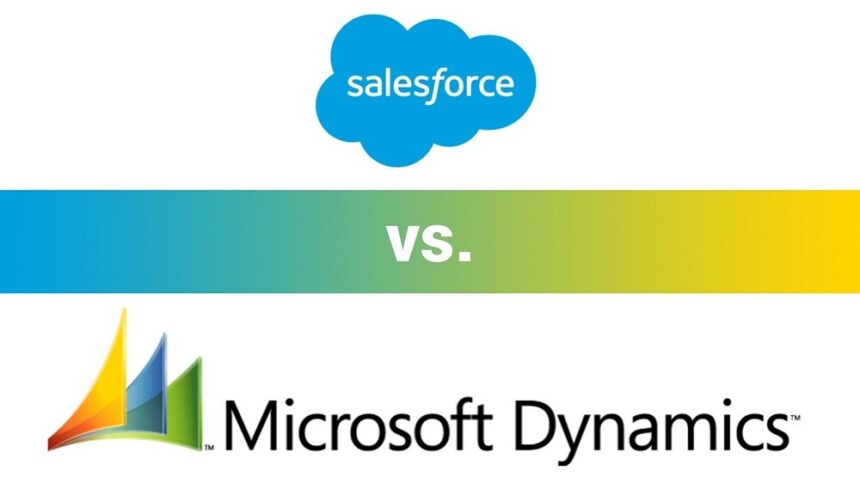A few years ago the competition in the CRM space was almost nonexistent. For most people it was Salesforce followed by everyone else. But things have dramatically changed in the last couple of years. Salesforce may still enjoy wide popularity, but the MS Dynamics 365 is fast catching up. Last year it emerged as a firm challenger to Salesforce’s domination and now it may actually take the top spot!
The rivalry between the two tech companies is hardly new and each had tried to outdo the other in their CRM development. Today both CRMs have their own pros and cons. Both have their dedicated followers. The reason for their choice could range from familiarity with one particular company to licensing concern.
But, if seen impartially, how do we evaluate the two? Which one does well against the other? Let us explore:
Integration
One of the biggest advantages of Dynamics 365 CRM is its integration with other MS products. The integration is extended to many of Microsoft’s core products like Outlook, Office and Sharepoint. This is a deep integration that is very complimentary. The integration is designed to make your work easier and to encourage the cords-dependence of the different products.
For instance, users on Outlook can almost simultaneously use the Dynamics for their CRM. Given the wide usage of MS products, this is a huge advantage for Dynamics CRM. The in-built functionality and coordination naturally encourages users to stick to Dynamics.
Salesforce may lack the heavy support of other products, but it more than makes up for it with its app support. The AppExchange, in fact, is its biggest USP. The AppExchange has a massive following due to its third-party apps. In fact, it is touted as the biggest B2B app store. The integration is excellent and has been a main factor in Salesforce popularity. The MS AppSource is a distinct second in this regard.
Must Read: Key Points from Microsoft Dynamics 365 Tech Conference
It also has Trailhead, which comes with an enviable support of engineers, developers and administrators. Not just an educational/tutorial tool, Trailhead has also been instrumental in customising Salesforce for better functionality and integration.
However, a mention here must be made of the recent LinkedIn acquisition. Although, we are not yet sure of how the integration here works out, the add-on of this platform is a huge draw for this software. The linking of contacts and accounts gives the Dynamics better odds than before.
Business Intelligence
A CRM without competent BI is not very useful in this age of data analysis. Both softwares here boast of state-of-the-art BI solutions. While Microsoft has Power BI, Salesforce created the Einstein platform last year. The question that came out was, of course, which one was better?
Salesforce created Einstein as a platform where all its acquired AI firms were combined. The company has made it functional this year. In addition, the Salesforce cloud services have powerful analytic abilities. However, Power BI has proven to be a better option, at least till now. Its functional capabilities and integration are just better. But with Salesforce committed to its BI and with increasing demand in this category, this is a space that we have to watch out for.
Pricing
This is where Salesforce may lose out. With its solid back-up of a diverse portfolio of products, Microsoft is just better placed to offer a more attractive package. Competitive pricing, licensing and bundling of highly functional products simply gives you a better bang for your money.
Salesforce has also strengthened its portfolio in recent months, possibly because of the stiff competition its faces from Microsoft in this sphere. Its cloud applications, for instance, are excellent. In fact, the range in the portfolio puts it ahead of Microsoft in some instances. However, the adding of these services also bumps up the price. While this may not be of concern to a large organisation, for smaller companies the price deferential definitely tips the balance in favour of Microsoft.
User Interface
Salesforce has always been an extremely user-friendly software which is easy to use and integrate within your own systems. However, Microsoft is fast catching up and now offers a UI that is as good as its top competitor’s. So, its difficult to pick a clear winner here.
Conclusion
Ultimately, the reason to go for a particular CRM will differ from person to person. Some may like the pricing advantage or LinkedIn support of Dynamics, while some may prefer Salesforce app support and easy UI.








